That Tracey Emin is one of the defining personalities of our time isn’t in doubt. Even if you never want to hear another second of her guileless wittering, another word about her abortions, traumatic early rape and relentless onanistic neediness, you can't deny that her self-effected transformation from chippy Margate outsider to big-league art-world player represents something extraordinary. As to her work, it's been difficult to be certain of her value - or to entirely write her off - as there's never been the chance to see a big enough body of her work at one time. This first British career survey affords the opportunity to redress that, to answer once and for all the question: is Tracey Emin actually any good?
Even if you're one of the many who think Emin essentially a media creation who'd never have amounted to anything without the attention of the tabloids and telly, the opening stages of this exhibition plunge you into the origins of her aesthetic with a vividness that will give you pause for thought. A ruined wooden pier looms over the first room, redolent of the bleak Kent coast, bathed in the queasy pink glow of one of Emin’s trademark neon wall texts: "Meet me in Heaven I will wait for you".
Nearby, a wallful of her richly patterned, rampantly mis-spelled appliqué blankets tells the story of Emin’s early life in a mishmash of raucous phrases: "Fuck school why go somewhere every day to be told you’re late", "Why should I protect myself from you when you’re the one who protects me", "Psyco Slut". If these proclamations feel unmediated by irony or self-knowledge, they are at least the products of real experience. While we’re assailed from all sides by the thin, theory-driven art of the post-YBA generation, Emin’s work is about real, dirty, deeply felt, human stuff. The question is whether she does enough that’s interesting with it – or if it simply sits beside the work as gushing, half-digested source material, more grist to the media mill.
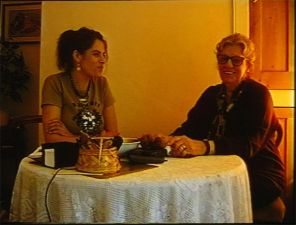 Two works here suggest very much the latter: Conversation With my Mum, a taped conversation in which she asks her mother why she encouraged her to have an abortion (pictured right, Emin with her mother), and How it Feels, in which she describes one of her abortions. Apart from putting child-size chairs for viewers to watch the former, there is no attempt to transform this material or provide a distancing element that would allow it to be more than - admittedly compelling – therapy on camera. It is likely to reinforce the widely held view that the most significant things about Emin aren’t actually in her work.
Two works here suggest very much the latter: Conversation With my Mum, a taped conversation in which she asks her mother why she encouraged her to have an abortion (pictured right, Emin with her mother), and How it Feels, in which she describes one of her abortions. Apart from putting child-size chairs for viewers to watch the former, there is no attempt to transform this material or provide a distancing element that would allow it to be more than - admittedly compelling – therapy on camera. It is likely to reinforce the widely held view that the most significant things about Emin aren’t actually in her work.
Yet a photograph of Emin’s family posing with Turkish wrestlers blown up into wall-filling monochrome wallpaper makes enough of a shift in scale to achieve a deeper resonance. Tacimin – Can You Hear Me?, a mock-up of a Ouija table under which she hid as a child, has a creepy authenticity, a sense of rootedness in dilapidated reality that carries on into There’s a Lot of Money in Chairs, a piece of family furniture, a padded chair, that she took on a tour of America, adding appliqué texts as she went.
While there’s some feebly thin stuff here (her films are hardly worth watching), when she’s focusing on her dysfunctional family you can’t help but be drawn in, even if you’re constantly wondering at the extent to which she’s made this personal material general, let alone universal, in its interest. Emin and Emin, a film of Tracey and her Turkish father – with whom she’s clearly obsessed – on the beach in Cyprus, ends with the words "I love you daddy". On the one hand you think, so what? Most of us love our dads? On another, it is weirdly affecting.
Casefuls of early ephemera intrigue: a photograph of Emin with one-time collaborator Sarah Lucas, wearing a huge grin and a T-shirt reading "Have you wanked over me yet?" takes us back to the now distant time when the YBA phenomenon was refreshingly subversive and often very funny. Conversely, Emin's Army, a map of the world bearing the names of her friends (Jopling, Collishaw etc) represents the movement at its most twee and self-referential.
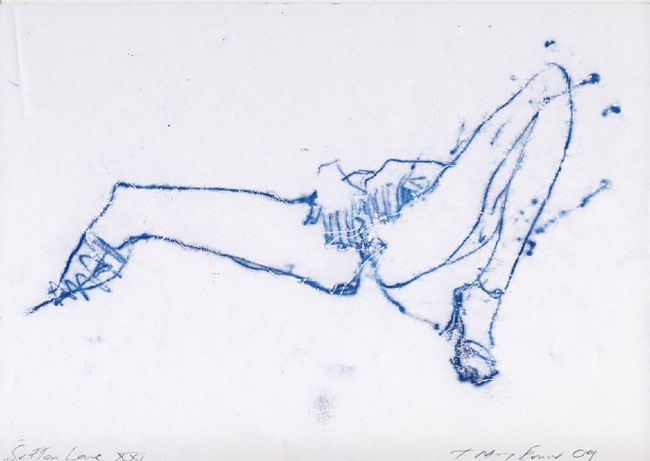
If the lower gallery immerses us in Emin’s emotional world as it tells the touching story of how she got where she is today, the upper floor is about a very rich, very successful artist employing large numbers of assistants to produce more art stuff. While Those Who Suffer Love, a jerky looped animation of the artist masturbating, is fizzily funny and sexy, the general reiteration of unsatisfied sexual longing and fear of abandonment become painfully repetitive and overstretched. Looking at My Cunt is Wet With Fear, just one of the endless lubricious messages in neon, or Sometimes I Feel Beautiful, a photo of Emin in a foamy bath with her head lolling over the side, you think, get a life, woman – or at least a new idea.
 A series of vaporous paintings fail to take off, and some large, rather Beuysian symbolic sculptures, linked, as far as one can tell, to the dynamics of the family (White Rose, 2007, pictured left), feel somewhat remote in their relation to their subject matter – not something you could accuse the early Emin of – even a touch academic.
A series of vaporous paintings fail to take off, and some large, rather Beuysian symbolic sculptures, linked, as far as one can tell, to the dynamics of the family (White Rose, 2007, pictured left), feel somewhat remote in their relation to their subject matter – not something you could accuse the early Emin of – even a touch academic.
Strong on storytelling and brilliantly designed, this exhibition gives Emin perhaps her best shot at convincing her many doubters. If it leaves you unsure as to Emin’s status and significance, it’s because you’ve been given such a rich sense of an eccentric individual, whose work is very much of its time, yet in an emotional realm all its own.
- Tracey Emin, Love Is What You Want at the Hayward Gallery till 29 August

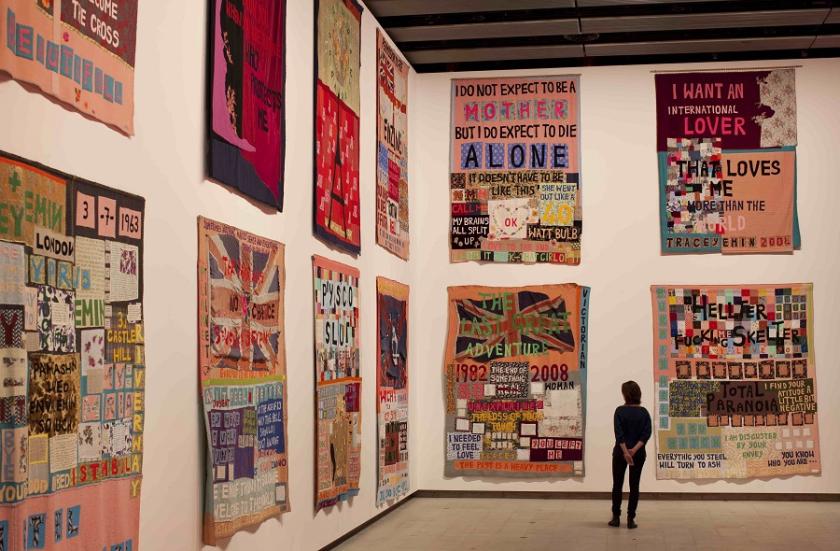




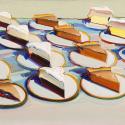



![SEX MONEY RACE RELIGION [2016] by Gilbert and George. Installation shot of Gilbert & George 21ST CENTURY PICTURES Hayward Gallery](/sites/default/files/styles/thumbnail_125_x_125_/public/mastimages/Gilbert%20%26%20George_%2021ST%20CENTURY%20PICTURES.%20SEX%20MONEY%20RACE%20RELIGION%20%5B2016%5D.%20Photo_%20Mark%20Blower.%20Courtesy%20of%20the%20Gilbert%20%26%20George%20and%20the%20Hayward%20Gallery._0.jpg?itok=3oW-Y84i)
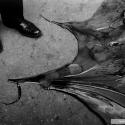



Add comment